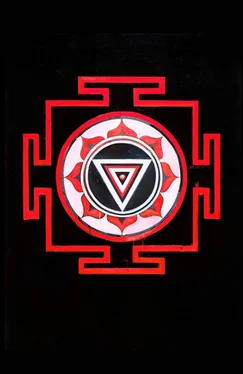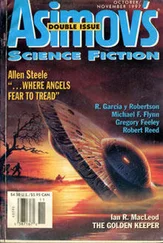There was a tip rolled into the palm of my hand, but he closed his huge hands over mine and resisted the offer of money.
‘No, no, Linbaba,’ he whispered. ‘I don’t… I can’t take anything.’
‘Sure you can,’ I smiled, forcing him to clutch at the money or let it fall to the ground.
‘That’s just what Mr Wilson would’ve given you, if you’d finished your shift with him tonight.’
‘M-Mr Wilson… ’
‘It’s okay. I just spoke to him.’
‘Yes, Linbaba. I saw you coming inside, before. I was waiting here, but I didn’t have the guts to talk to him.’
‘He won’t make a complaint.’
‘It’s sure, Linbaba? Really?’
‘It’s sure. He told me. It’s okay.’
The gleam in Manav’s black-brown eyes followed me as I collected my bike and rode along Marine Drive to the peak of Malabar Hill.
I stopped at a vantage point looking down on the windowed jewels of light lining the bay-wide smile of Marine Drive. I rolled myself a hash joint and began to smoke it.
A beggar, who made the long, winding climb to the summit every night for a safe place to sleep, came to sit nearby. I handed him the joint. He grinned and puffed at it happily, using his hand as a chillum to draw the smoke without touching it to his lips.
‘ Mast mal! ’ he muttered, smoke streaming out through his nostrils. Great stuff!
Nodding sagely, he puffed again, and passed the joint back to me.
I took the piece of hash I’d used to make the joint, and gave it to him. The man became suddenly serious, looking from the large piece of hashish in his palm to my eyes, and back again.
‘Go home,’ he said at last in Hindi. ‘Go home.’
I rode back through storming rain, parked my bike in the shelter beneath my building, slipped a damp twenty-rupee note into the shirt pocket of the sleeping watchman, and entered my apartment.
Lisa wasn’t there. I stripped off the wet clothes and boots, showered, ate some bread and fruit, drank a mug of coffee, and lay back on the bed.
The electric fan turned overhead just fast enough to send a cooling flourish into the humid air. A new downpour drummed against the metal gable over the bedroom window, sending rivulets as silver as mercury streaming past the half-open window.
I smoked a joint in the dark, and waited. It was after three when Lisa returned, her footsteps tapping the dissonant dance of the drunk on the marble floor tiles of the entry hall.
She tumbled into the room, throwing her handbag against a chair. It missed, and rolled off onto the floor. She kicked one loose, untied sandal off, and hop-stumbled out of the other.
Turning in struggling little circles, she wriggled out of her dress and panties, trailing them from one ankle as she thumped onto the bed.
I couldn’t see her pupils, in the darkened room. One look at them would’ve told me what she’d taken: all drugs live and die in the eyes. I reached out to switch on the bedside lamp, but she stopped me.
‘Leave it off! I want to be Cleopatra.’
When she was deep in sleep I took a wet towel and cooled her down. I dried her off, and she rolled onto her side of the bed, and settled into blameless sleep.
I lay back in the darkness, beside her. Bats chittered past the open window, seeking shelter from the dawn. The watchman, who’d woken from his nap to do rounds of the building, tapped his bamboo stick against the ground to warn away foraging rats. The sound faded, and the room was still and quiet. Her breathing was waves on a gentle shore.
I was happy for the Zodiac Georges, sudden millionaires, and happy to see that Naveen and Divya were still together, no matter how much they fought. And I was glad that Lisa was home and safe.
But I was sick inside. I didn’t know what Lisa wanted, but I was sure it wasn’t me. There were times, I think, when I wanted her to want me, and love me, and let me love her in return. There were times when I hoped that it would happen. But wanting more was a sign of how little we had. We were friends who didn’t try hard enough to make it more.
My eyes began to close. In a half-dream I saw Ranjit, his face contorted, a fiend, a malignant thing. I started awake, and listened for a while to the soft echo of the sea, Lisa’s breath, until my eyes closed again.
And we slept, together and alone, as rains washed the city cleaner than the kneeling stone in a prison confessional.
The filthy Georges, as many had called them, were filthy rich. The whole of South Bombay babbled, marvelling at the fate that allowed the meekest of the city’s meek foreigners to become inheritors of the earth. The once-shunned beggars were suddenly shunted into social acceptability. How the fallen are mighty , Didier laughed happily.
For three weeks the door of the Zodiac Georges’ suite opened, day and night, to admit a promissory of experts, devoting their talents to squeezing the square-peg street dwellers into the round holes of sudden wealth: tailors, barbers, podiatrists, jewellers, numerologists, watchmakers, yoga instructors, manicurists, stylists, meditation masters, astrologers, accountants, legal representatives, personal servants, and a frenzy of stress counsellors.
Securing the essential services of those professionals, and driving their fees to vulture leavings, was a task that Divya Devnani applied herself to with considerable energy, and no little flair. She took a suite at the hotel for those weeks, and was almost constantly in the company of the fledgling millionaires. Reinventing Scorpio and Gemini was a duty, she told me.
‘I was right there when the Georges came into their money,’ she said. ‘Me, who just happens to be the richest girl in Bombay, and a girl of supernaturally good taste. This is karma. This is kismet. Who am I to snub my nose? It’s my duty to help them rise from the ashes.’
The Zodiac Georges, for all their loving friendship, had completely different strategies for coping with the move from ashes to A-listers.
Gemini George suggested that they should give most of the money away. The Georges never lied, never cheated their customers, and never raised a hand to anyone. Life in the slums and back alleys of Bombay had given them a long list of friends and deserving recipients: people who’d helped them, managers of cheap restaurants and little shops who’d extended them life-saving lines of credit, a shuffle of beggars and street touts whose kindness had kept them afloat, and even a few cops, who’d always looked the other way.
With what remained of the money, Gemini enthused, they could have a long, unforgettable season of parties, and then put a modest amount into an interest-bearing account, paid monthly, and go back to living happily, and more comfortably, on the street.
Scorpio wasn’t tempted. Although he was horrified by the responsibilities and moral burdens of his sudden wealth, and he talked about it to everyone not skilled in the art of escaping pessimists, he couldn’t bring himself to part with it.
The first weeks of his prosperity were a nightmare, he said. Money is another word for misery, he said. Money is the ruin of peace, he said. But he wouldn’t embrace Gemini’s plan, and give the burden away.
He fretted, paced, moaned and mumbled. Shaved and trimmed, exfoliated and massaged, manicured and moisturised, the tall Canadian wandered back and forth in the luxurious suite, prosperously uneasy.
‘It will end badly, Lin,’ he said to me, when I dropped in to visit.
‘Everything ends badly, for everyone. That’s why we have art.’
‘I guess,’ he agreed vaguely, not consoled. ‘Did you see Gemini, when you came in? Is he still playing cards?’
‘I didn’t see him. A Sikh guy let me in. He called himself your major-domo.’
Читать дальше












